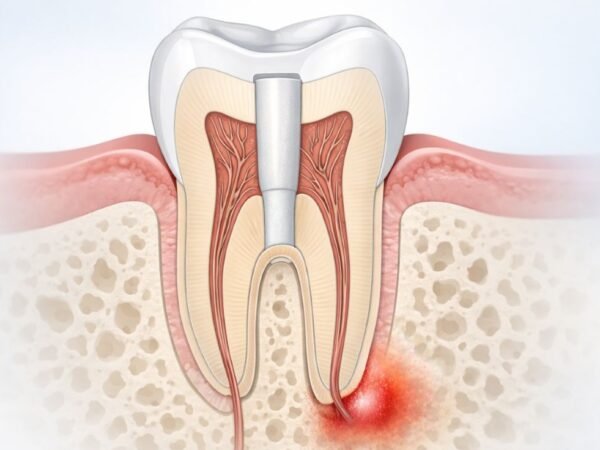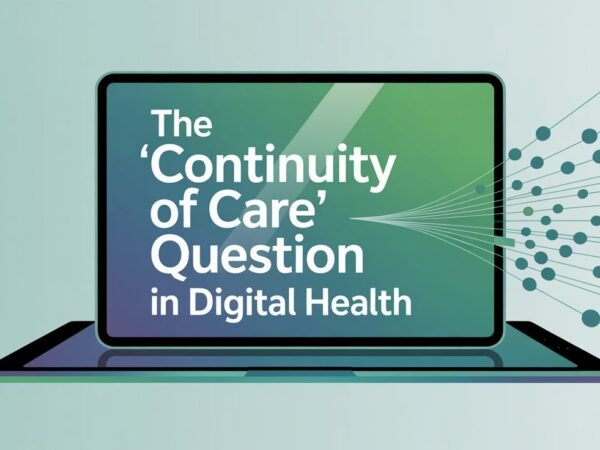In recent years, the conversation around mental health has expanded to include a variety of alternative treatments alongside traditional therapies. From mindfulness and yoga to herbal remedies and energy healing, these approaches can offer unique benefits for individuals seeking holistic mental health support. However, with so many options available, navigating the world of alternative treatments can be overwhelming. It’s essential to approach this journey with knowledge, care, and intentionality. In this blog, we’ll explore six critical tips to help you effectively navigate alternative mental health treatments, ensuring you find the right path for your healing journey. Whether you’re looking to complement existing therapies or explore new avenues for wellness, these tips will empower you to create informed decisions that align with your needs and goals.
Educate Yourself
In today’s world, where mental health knowledge and awareness are on the rise, many people are seeking and learning alternative treatments to complement or even replace traditional therapeutic approaches. While this exploration can be beneficial, it also comes with many options and alternatives that can be overwhelming. Before diving into any alternative treatment, it’s crucial to do your research. Learn about various therapies, such as acupuncture, yoga, meditation, and herbal medicine, to understand their principles, benefits, and potential risks. Read articles, watch documentaries, or consult trusted websites dedicated to mental health. Knowledge will empower you to make informed decisions and choose therapies that resonate with your needs. Here’s why and how you can do it effectively.
How to Educate Yourself
Read Books and Articles
Start by exploring books from reputable authors in mental health and alternative therapies. Look for articles in psychology journals, health magazines, or reputable websites dedicated to mental wellness. These resources can provide information on various treatments, their effectiveness, and practical advice.
Watch Documentaries and Webinars
Documentaries can offer compelling insights into alternative mental health practices. Look for documentaries focusing on personal experiences or the science behind these treatments. Many organizations and practitioners host webinars and online workshops that delve into specific therapies and their applications.
Follow Trusted Sources Online
Follow mental health organizations, qualified therapists, and holistic health practitioners on social media. They often share valuable insights, tips, and updates on alternative therapies. Look for accounts that prioritize evidence-based information to ensure you receive reliable guidance.
Join Support Groups or Forums
Participating in support trending groups or online forums can provide a platform for discussing alternative treatments with others with similar interests. Hearing about others’ experiences can offer new perspectives and ideas. Just be mindful of the information shared, as personal anecdotes may not always reflect and look scientific evidence.
Consult with Mental Health Professionals
Engaging with your current mental health provider is vital to your educational journey. Discuss your interest in alternative treatments and ask for their insights. They can help you navigate the options and provide recommendations based on your unique mental health needs.
By taking the time to understand the various options available, you empower yourself to make informed and sound decisions that align with your mental health goals. Remember, knowledge is powerful in pursuing well-being and can lead you to treatments that resonate with you. Embrace this opportunity to explore and discover the many avenues to healing and take charge of your mental health journey with confidence.
Consult with a Professional
Consulting a mental health professional can provide enhancive and valuable insights into alternative treatments. Therapists, psychologists, and psychiatrists can assess whether an alternative approach complements your treatment plan. They can also guide you on the credibility of practitioners and techniques you may consider. A collaborative approach ensures you make safe choices for your mental health journey.
When considering alternative treatments for mental health, consulting with a mental health professional can be instrumental in navigating this often complex terrain. Experienced professionals such as therapists, psychologists, or psychiatrists possess the expertise to evaluate the compatibility of alternative approaches with your existing treatment plan. They can assess potential benefits and drawbacks specific to your condition by engaging in a thorough discussion, enabling a tailored approach to your care.
These professionals can help you understand different alternative methods’ scientific validity and safety. With their guidance, you’re more likely to select credible practitioners and effective techniques, eliminating much of the uncertainty that independently exploring these options might entail. Importantly, professionals can monitor your progress and make adjustments as needed, ensuring that the alternative treatments support rather than hinder your mental health journey.
Moreover, collaborating with a mental health professional fosters a sense of accountability and reassurance. They are a reliable checkpoint, helping you make informed and safe decisions that align with your health and wellness objectives. This collaborative process enhances the efficacy of your treatment plan. It empowers you with knowledge and confidence as you navigate the diverse landscape of mental health care.
Seek Qualified Practitioners
As interest in alternative mental health treatments continues to rise, it’s essential to approach these options with careful consideration and diligence. One of the most crucial steps in this journey is seeking qualified practitioners. Not all alternative treatments are created equal, and the effectiveness often depends on the practitioner’s qualifications. Look for licensed or certified professionals who specialize in the alternative therapies you’re interested in. Check their credentials, read reviews, and consider scheduling an initial consultation to gauge their expertise and compatibility with your needs. Trust is essential, so ensure you feel comfortable with your chosen practitioner.
Why Qualified Practitioners Matter
Expertise and Training
Alternative mental health treatments encompass a wide range of therapies, including acupuncture, mindfulness practices, herbal medicine, and various forms of bodywork. Each of these modalities requires specific training and expertise. Qualified practitioners have undergone formal education and training in their respective fields, equipping them with the knowledge to deliver effective and safe treatments. This expertise is vital to ensure the techniques are grounded in proven methodologies.
Safety and Ethical Practice
Working with qualified practitioners minimizes the risks associated with alternative treatments. Many alternative therapies involve physical touch or the use of substances, making it essential that the practitioner understands safety protocols and ethical guidelines. A qualified professional will adhere to these standards, ensuring you receive care that respects your well-being and autonomy.
Individualized Approach
Every person’s mental health journey is unique; a qualified practitioner will recognize this. They will take the time to understand your specific needs, preferences, and concerns, tailoring their approach to best support you. This individualized attention can lead to more effective treatments and a more potent therapeutic relationship, which is crucial for mental health care.
Integration with Conventional Care
If you are currently receiving traditional mental health treatment, working with a qualified practitioner can facilitate better communication and integration of care. These practitioners can collaborate with your mental health provider, ensuring your treatment plan is comprehensive and cohesive. This collaboration helps maintain a consistent approach to your mental health, combining the benefits of both alternative and traditional methods.
These professionals bring expertise in proven methodologies, ensuring effective and safe treatments. So, if you are considering alternative therapies for your mental health journey, be sure to seek the guidance of a qualified practitioner. They can help you navigate the diverse landscape of alternative treatments and support you in making informed decisions about your well-being.
With a growing demand for alternative therapies, many practitioners have established their practices in the state, often integrating Mental Health Services alongside diverse options such as acupuncture, yoga therapy, mindfulness-based approaches, and herbal medicine.
Listen to Your Body and Mind
Alternative treatments have gained significant popularity in the journey towards mental wellness. From mindfulness practices to holistic therapies, these approaches can offer fresh perspectives and healing opportunities. However, as you explore these alternatives, one vital tip stands out: Listen to Your Body and Mind. Understanding and tuning into your physical and emotional responses can significantly enhance your experience with alternative mental health treatments. Here’s how to cultivate this awareness and why it matters.
The mind-body connection is a powerful phenomenon. Our emotions, thoughts, and physical sensations are intricately linked. This connection means that when you engage in alternative therapies—such as yoga, acupuncture, or talk therapy—your body may react in ways that reflect your emotional state. Conversely, your mind can also influence how you perceive and respond to physical sensations. Recognizing this connection is essential. When exploring alternative treatments, being mindful of how your body and mind react can provide valuable insights into your overall well-being.
Tune Into Your Physical Sensations
As you embark on any alternative therapy, pay attention to how your body feels before, during, and after each session. Notice any changes in energy levels, muscle tension, or areas of discomfort. For instance, during a yoga session, you might feel tightness in your shoulders or a sense of lightness in your limbs. These sensations can reveal underlying emotions or areas where you may need to focus your healing efforts.
Acknowledge Your Emotions
Emotions often manifest physically and vice versa. When trying a new treatment, note any feelings and emotions that arise. You might experience anxiety, joy, frustration, or relief. Allow yourself to feel these emotions without judgment. Understanding how different treatments impact your emotional state can help you make more informed choices about your mental health care.
Keep a Journal
Journaling can be a powerful tool for tracking your experiences with alternative treatments. Consider documenting your thoughts, feelings, and physical sensations before and after each session. Reflecting on these entries can help you identify patterns, triggers, and responses over time. This practice enhances self-awareness and allows you to communicate more effectively with your practitioners.
Communicate with Your Practitioner
Open communication with your alternative treatment practitioner is vital. Share your observations about how your body and mind are responding. Let your practitioner know if you feel discomfort or unease during a session. Based on your feedback, they can adjust their approach to ensure the treatment meets your needs and comfort level.
Trust Your Instincts
Listening to your body and mind requires trust in your intuition. If something doesn’t feel right, it’s essential to acknowledge that feeling. Whether it’s a particular treatment, practitioner, or approach, trusting your instincts can guide you toward what truly serves your well-being. Remember, your mental health journey is deeply personal, and you have the authority to prioritize your comfort and safety.
By tuning into your physical sensations and emotional responses, you empower yourself to make informed choices about your healing journey. This awareness fosters a deeper connection to yourself, enabling you to explore alternative therapies with confidence and intention. Ultimately, your well-being is the priority—embrace the process of self-discovery and healing, and allow your body and mind to guide you toward what resonates with you.
Combine with Traditional Treatments Wisely
Alternative therapies can often complement traditional mental health treatments. However, it’s vital to approach this combination thoughtfully. Discuss your intentions to integrate alternative therapies with your primary mental health provider. They can ensure that the combination of treatments works harmoniously and monitor your progress to make necessary adjustments.
When considering integrating alternative therapies with traditional mental health treatments, careful planning and open communication with healthcare professionals play crucial roles. First, provide your mental health provider with a detailed overview of the alternative therapies you wish to incorporate, including potential associated benefits and risks. This will help them understand your motivations and tailor a more comprehensive treatment plan.
Next, establish a timeline for integrating these therapies alongside your existing treatments. This allows for a structured approach to evaluating the effectiveness of the combined methods. Regular check-ins with your provider are essential, as they can assess if the alternative therapies are enhancing your well-being or interfering with current treatments.
Finally, remain open to adjusting your plan as needed. The journey toward improved mental health is often dynamic, and what works best might change over time. Your provider may suggest modifications based on your progress, ensuring that the harmonious balance between traditional and alternative therapies is maintained.
By following a collaborative and informed approach, you maximize the potential benefits of both treatment modalities while safeguarding your mental health.
Be Patient and Open-Minded
Finding the proper alternative treatment can take time. Some therapies may work immediately, while others require consistent practice before you notice significant changes. Stay patient and open-minded throughout the process. Embrace the journey of self-discovery and healing, and remember that mental health is a multifaceted experience. The key is to remain committed to finding what works best for you.
In the ever-evolving landscape of mental health care, many individuals are exploring alternative treatments alongside traditional therapies. From mindfulness practices to herbal remedies, alternative mental health options offer unique pathways to healing. However, navigating this diverse array of treatments can often feel overwhelming. One of the most essential tips for successfully navigating alternative mental health treatments is to be patient and open-minded. Here’s why this approach is crucial for your journey.
The Importance of Patience
Healing Takes Time
Mental health improvement is not always immediate. Unlike some physical conditions where results can be quickly measured, emotional and psychological healing can be gradual. Patience allows you to give each treatment the time it needs to take effect. Whether you’re trying acupuncture, meditation, or therapy, results may only manifest after some time. Allow yourself the grace to experience this journey without rushing to see outcomes.
Adjusting to New Approaches
Alternative treatments often introduce new philosophies and practices that may be unfamiliar. It takes time to adjust to these approaches, both mentally and physically. For instance, if you’re starting a yoga practice for stress relief, it may take several sessions before you notice a shift in your mindset. Patience enables you to embrace this learning curve and appreciate the subtleties of your experience.
Finding the Right Fit
With many alternative treatments available, finding the right one for you can require trial and error. It’s common for individuals to try several therapies before discovering what resonates best with them. This exploration process requires patience. Remember that what works for one person may not work for another, and that’s perfectly okay.
The Power of Open-Mindedness
Embracing New Ideas
Approaching alternative treatments with an open mind allows you to consider methods and philosophies that may initially seem foreign or unconventional. Techniques like energy healing, sound therapy, or art therapy may feel outside your comfort zone. However, being open-minded can lead to valuable insights and experiences that enhance your understanding of mental health.
Overcoming Stigmas
Alternative treatments often come with preconceived notions and stigmas. Open-mindedness encourages you to challenge these biases and view these therapies for their potential benefits rather than their reputation. By focusing on what these treatments can offer, you create space for healing and growth.
Cultivating Curiosity
An open-minded approach fosters curiosity, encouraging you to explore and ask questions about the therapies you encounter. This curiosity can lead to a deeper understanding of how different treatments work and how they may align with your values and beliefs. Engaging with practitioners and learning about their methods can enrich your healing journey.
Practical Steps to Cultivate Patience and Open-Mindedness
- Set Realistic Expectations: Acknowledge that healing is a journey and set achievable goals for yourself. Celebrate small victories along the way to stay happy and motivated.
- Practice Mindfulness: Incorporating mindfulness into your daily routine can help you remain present and engaged with your experiences. Mindfulness encourages you to observe and monitor your thoughts and feelings without judgment.
- Keep a Journal: Document your experiences with various treatments. Reflecting on your feelings, thoughts, and observations can help you track progress and understand what resonates with you.
- Engage with Community: Connecting with others and exploring alternative treatments can provide support and encouragement. Sharing experiences and insights can foster a sense of belonging and motivation.
By being patient and open-minded, you allow yourself to fully engage with the process, embracing the challenges and the triumphs that come along the way. Remember that Mental Health Therapist is an excellent resource for exploring alternative therapies and finding a supportive community. With patience and open-mindedness, you can tackle a voyage of self-discovery and healing, leading to a more fulfilling and balanced life. So, feel free to explore beyond traditional approaches and embrace the diversity of therapy options available. Your mental health earns your attention and care from being open to new perspectives and possibilities. Trust in your process, stay curious, and have faith that your journey will lead you where you need to be.
Conclusion
Navigating alternative mental health treatments can be an empowering and transformative journey. By educating yourself, seeking professional guidance, and listening to your body, you can explore various therapies that may enhance your overall well-being. The path to mental wellness is unique and new for everyone, and combining different approaches can lead to a more holistic understanding of your mental health. With patience and an open heart, you can discover alternative treatments that support your healing journey and enrich your life.
Do Read: Naturaplug.com: Discover Natural Health, Organic Living & Wellness













